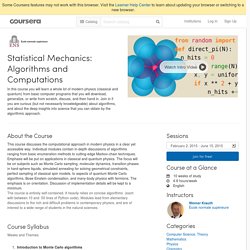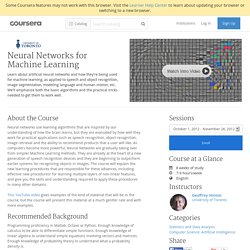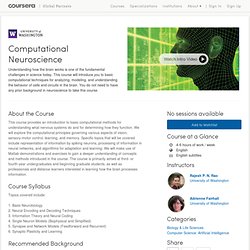

Logic 101. Logic 101 These lectures cover introductory sentential logic, a method used to draw inferences based off of an argument's premises.

Logic is ubiquitous--individuals thinking of pursuing a career in law, computer science, mathematics, or social science must have a firm understanding of basic logic to succeed. Even someone who occasionally programs in Microsoft Excel would benefit greatly. Lectures Prerequisites Logic 101 is the ground floor--there are no prerequisites other than being willing to think through problems. Syllabus This class will cover eight topics: Simple Sentences and OperationsTruth TablesReplacement RulesRules of InferenceProofsConditional ProofsProof by ContradictionFormal Fallacies Additional information Teacher qualifications I am a PhD Candidate at the University of Rochester. Intro to Complex System Engineering. Creative Problem Solving. Intro to Mathematical Thinking. About the Course NOTE: For the Fall 2015 session, the course website will go live at 10:00 AM US-PST on Saturday September 19, two days before the course begins, so you have time to familiarize yourself with the website structure, watch some short introductory videos, and look at some preliminary material.
The goal of the course is to help you develop a valuable mental ability – a powerful way of thinking that our ancestors have developed over three thousand years. Mathematical thinking is not the same as doing mathematics – at least not as mathematics is typically presented in our school system. School math typically focuses on learning procedures to solve highly stereotyped problems. Professional mathematicians think a certain way to solve real problems, problems that can arise from the everyday world, or from science, or from within mathematics itself. The course is offered in two versions. Course Syllabus Instructor’s welcome and introduction 1. 2. 3. 4. 5. 6. Cryptography, I. Cryptography, II. Quantum Mechanics & Computation.
Statistical Mechanics: Algorithms & computations. About the Course This course discusses the computational approach in modern physics in a clear yet accessible way.

Individual modules contain in-depth discussions of algorithms ranging from basic enumeration methods to cutting-edge Markov-chain techniques. AI: Neural Networks. About the Course Neural networks use learning algorithms that are inspired by our understanding of how the brain learns, but they are evaluated by how well they work for practical applications such as speech recognition, object recognition, image retrieval and the ability to recommend products that a user will like.

As computers become more powerful, Neural Networks are gradually taking over from simpler Machine Learning methods. They are already at the heart of a new generation of speech recognition devices and they are beginning to outperform earlier systems for recognizing objects in images. The course will explain the new learning procedures that are responsible for these advances, including effective new proceduresr for learning multiple layers of non-linear features, and give you the skills and understanding required to apply these procedures in many other domains.
Recommended Background Programming proficiency in Matlab, Octave or Python. Computational Neuroscience. About the Course This course provides an introduction to basic computational methods for understanding what nervous systems do and for determining how they function.

We will explore the computational principles governing various aspects of vision, sensory-motor control, learning, and memory. Specific topics that will be covered include representation of information by spiking neurons, processing of information in neural networks, and algorithms for adaptation and learning. We will make use of Matlab demonstrations and exercises to gain a deeper understanding of concepts and methods introduced in the course. The course is primarily aimed at third- or fourth-year undergraduates and beginning graduate students, as well as professionals and distance learners interested in learning how the brain processes information. Course Syllabus Topics covered include: 1. Recommended Background Familiarity with basic concepts in linear algebra, calculus, and probability theory.
In-course Textbooks.